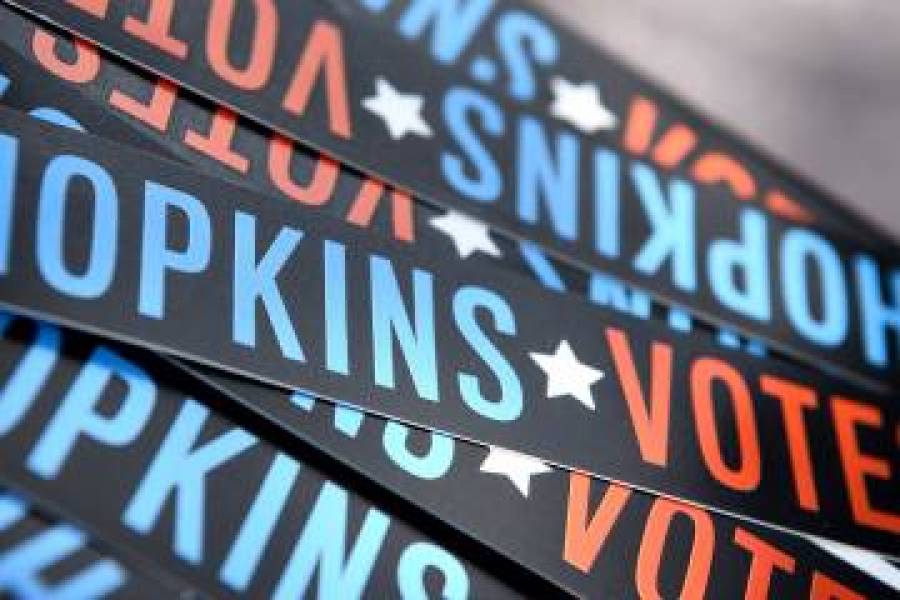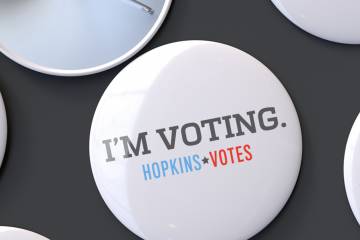Three years after the launch of the Hopkins Votes initiative, Johns Hopkins University has been recognized as a Voter Friendly Campus by a national coalition that measures voting accessibility at schools and universities across the nation.
JHU is among 231 universities across 37 states and Washington, D.C. to receive this designation, an initiative led by the National Association of Student Personnel Administrators and Campus Vote Project.
"The recognition of the Voter Friendly Campus is a reflection of the passion and energy our students have for civic engagement," said Misti McKeehen, executive director of the Center for Social Concern. "We hope to continue the momentum to ensure all eligible voters are casting a ballot in every election and those who are not eligible can identify opportunities to have their voices heard through the process as well."
The Voter Friendly Campus designation program was started through the partnership of Campus Vote Project and NASPA in 2016. The goal of the program is to help institutions develop plans to coordinate administrators, faculty, and student organizations in civic and electoral engagement. The Voter Friendly Campus designation helps administrators develop a strategy to engage students and set clear goals so a path to participation can be created in advance of upcoming elections.
For the 2020 election, Hopkins engaged in a number of virtual events and initiatives to ensure students would be able to vote despite the setbacks of the COVID-19 pandemic. Initiatives included virtual voter registration hours, online registration and voting events, and a partnership with TurboVote, an online platform that delivers tailored election information and deadline reminders directly to participants' phones via text or email. Additionally, staff members from Student Affairs, Transportation, Community Affairs, and the SNF Agora Institute at Johns Hopkins met regularly with administrators to plan and support the goals of the Hopkins Votes team.
The designation comes on the heels of recognition for the university's increase in student voting participation between the 2014 and 2018 midterm elections, a jump that was among the largest of any college or university in the country, according to the All-In Campus Democracy Challenge, which tracks voting turnout on college campuses.
Posted in Student Life, Politics+Society









